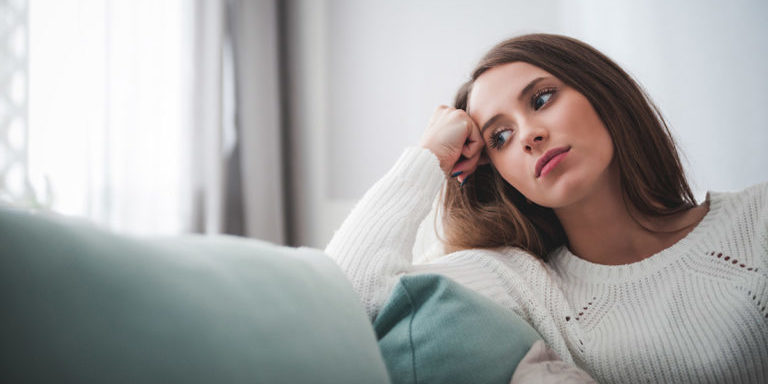Many people with eating disorders are struggling with significant negative impacts as a result of the lockdown due to the COVID-19 pandemic. Not only does this pandemic cause fear and anxiety for the general population, but it can also pose unique challenges for those with eating disorders. As a result, many individuals with these conditions are facing new and unprecedented challenges. At our eating disorder treatment center, we strive to give women the tools to overcome eating disorders and other mental health conditions. If you’re struggling with an eating disorder that has gotten worse due to the lockdown, our team can help. Contact Crossroads Maine today at 877.978.1667.
How Does a Lockdown Influence Eating Disorders?
If you’ve experienced an eating disorder, you have struggled with a disordered relationship with food. In times of stress or anxiety, it can become harder to control your condition. For instance, because you’re now isolated a significant amount of the time, you could revert back to your previous habits. At times, you may think you’re helping your loved ones. For instance, you could think, “Well, if I skip this meal, my friends and family will have more to eat.”
Conversely, the stress of the situation may cause you to revert to binge-eating sessions. If you suffer from binge eating disorder, you could end up gaining significant amounts of weight. If you struggle with bulimia nervosa, you may try to counteract your binge eating sessions using a range of reactions, including:
- Vomiting
- Diuretics
- Excessive exercise
- Laxatives
How To Cope With Lockdown
Coping with lockdown doesn’t have to be difficult. There is a range of practices that you can use during the pandemic.
Be Patient With Yourself
Healing doesn’t happen all at once. During this stressful time, you need to remember that you’re only human. As such, it’s important not to beat yourself up. Instead, recognize what you’re going through, and talk to a loved one about what’s happening. They may have ideas about how to get through the challenges.
Don’t Label Foods
When you struggle with an eating disorder, you could be tempted to label certain foods as either good or bad. However, while you’re in recovery, particularly during the COVID-19 lockdown, try to push these labels and thoughts aside. Every food is acceptable as long as you eat them mindfully.
It’s Okay If You Don’t Make It To the Gym
When you’re recovering from an eating disorder such as anorexia or bulimia, limiting your exercise and avoiding the gym can help cultivate healing. It’s critical to recognize that your body will remain healthy even if you forgo exercising for a bit.
Create a Routine
If it helps you control your eating habits, create a schedule to ensure you’re eating regular snacks and meals throughout the day. You can also determine what foods you want to eat at those times.
To distract you from thinking about food, you can also create a schedule for what you’ll do when you’re not eating. In spite of the COVID-19 lockdown, there are still plenty of things to do, including:
- Painting
- Learning a new skill
- Read a new book
- Write in a journal
- Take a walk outside
Stay Connected
Eating disorders thrive in isolation. To contain your condition, try talking to a friend or loved one over Zoom or FaceTime. If you are reluctant to try this, talk to a member of the mental health treatment team at Crossroads Maine.
Contact Crossroads Maine
At Crossroads Maine, we want to help you put your eating disorder in the past. If the COVID-19 lockdown has caused you to relapse, we’re here to help. We offer a range of treatment options, including:
For more information about your treatment options, please contact our team at 877.978.1667 today.


















